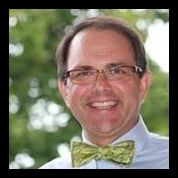Сорок лет благовестия!
На протяжении всех лет моего служения
евангелиста, моим посланием всегда
было Евангелие нашего Спасителя!!!
Это - не западная религия и не послание
одной культуры или политической системы…
Это послание жизни и надежны для всего мира.
Билли Грейм
5 -10 мая 2014-го года лидеры со всего мира собрались вместе в Швейцарии - в том месте, где 40 лет назад был утвержден Лозаннский комитет по всемирному евангелизму. Председатель международного комитета д-р Майкл Оу открыл конференцию такими словами: «Мы хорошо помним историю, и благодарим Бога за евангелиста Билли Грейма и богослова Джона Стота… но давайте сфокусируем наше время и энергию на том, что Бог приготовил для этого движения в каждом из двенадцати Лозаннских регионов мира». Пастор Жан-Поль Ремпп из Франции в своем приветственном слове подчеркнул тот факт, что Европа и мир, в общем, находятся в отчаянном состоянии. Общество страдает от агрессии и коррупции, как никогда нуждаясь в слове и служении примирения на основании 2 Коринфянам 5:19.
Каждый день конференции, по примеру конгресса в Кейптауне, начинался с индуктивного изучения Писания. Как было правильно отмечено, церковь, прежде всего, должна вернуться к исследованию Писания. Чтение Библии (devotion) и проповедь одним человеком стали «фаст фудом - полуфабрикатом» для многих, повлияв на духовное здоровье верующих. Все больше церквей, Союзных канцелярий и служений уделяют групповому разбору Писания больше внимания даже в рабочее время, чтобы вовлечь всех сотрудников в процесс духовного роста. Верующие не имеют права быть духовно ленивыми, и духовные лидеры обязаны поощрять активную молитву, время поклонения и прославления Бога.
Пленарные заседания были посвящены пониманию истины, которая объединяет вокруг Того, Кто и есть истина и жизнь. Стефан Густавсон из Швеции и Крис Райт из Великобритании помогли всем присутствующим осознать насколько важно ученичество в определении нашего сыновства, на основании Евангелия от Иоанна. Можно называться сыном (дитем Авраама), но если в нас живет грех (дух обмана, к примеру), то мы больше рабы отца тьмы, нежели сыны света. Время групповых бесед и молитвы, действительно, было отмечено моментами исцеления как духа, так и души. Было уделено время и молитвы за целые народы, которые страдают от политической коррупции (как Россия и Украина), от догматических противостояний (как Южная Корея и Израиль), от экуменических вызовов, по причине которых Всемирный Совет церквей и Всемирный Евангельский Альянс отменили проведение своих конгрессов в этом году.
Огромным благословением стали вечера - время свидетельств представителей различных стран, которые поведали о чудодейственной работе Бога даже в условиях умножения беззакония. К примеру, во Франции почти еженедельно открывается новая евангельская церковь, а в Испании и Португалии Бог поднимает для служения все новых евангелистов. Балканские страны особенно порадовали развитием молодежного движения и студенческого благовестия в университетах. В Албании, которую несколько десятилетий подряд пытались сделать первой атеистической страной в Европе, сегодня набирает силу миссионерское движение, благодаря которому открываются новые церкви в Италии и на юге Европы.
Майкл Оу, возглавляющий Лозаннское движение всего три года, уделил время осмыслению того, кто мы есть. Было утверждено такое определение: «Для евангельских лидеров Лозаннское движение является заслуживающим доверие собранием, благодаря которому встречаются наиболее влиятельные личности, способные наполнить глобальную миссию благовестия убедительным содержанием и духом сотрудничества». Всемирная миссия сфокусирована: (а) на Евангелии для каждого человека, (б) евангельская церковь для каждого народа, (в) христоцентричные служители для каждой поместной церкви и (г) влияние Царства Божьего на все сферы общества. Как можно свершать эту миссию? Майкл Оу предложил пять направлений ее реализации:
- через Божий народ: усиление взаимоотношений и партнерства;
- во всем: целостный подход к служению;
- на всяком месте: поместное служение не должно отличаться от глобального влияния;
- исключительно под Его водительством: молитвенная зависимость во всем;
- ради того, чтобы мир познал Его: библейское и миссиологическое посвящение призванию.
«Сегодня в мире около 43 тысяч деноминаций. Если бы не Лозаннское движение, их было бы на пару тысяч больше», - отметил Павел Эшелмен, учредитель проекта «Фильм Иисус». Может и так, но точно могу сказать, что Лозаннское движение является наиболее евангельской платформой для стратегического сотрудничества евангельских церквей, служений, бизнеса, медиа, искусства и науки. Поскольку это движение никогда не станет организацией, в нем сокрыт потенциал активного и слышимого голоса, обращенного ко ВСЕЙ церкви, способной нести ВСЕ Евангелие ВСЕМУ миру. Да благословит нас в этом Господь.
Анатолий В. Глуховский,
Заместитель международного директора по Евразии,
Лозаннское движение по Всемирному благовестию

